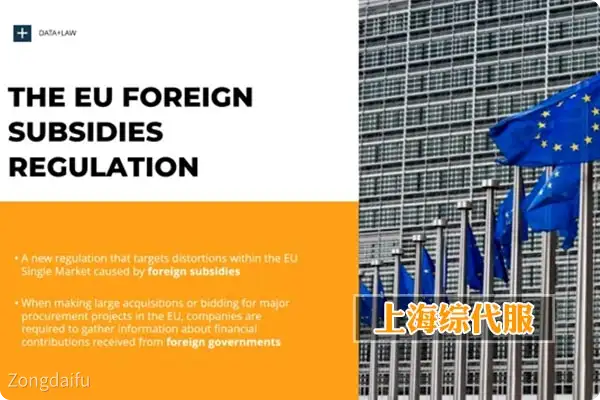On July 12, the European Union’s Foreign Subsidy Regulation (FSR) came into force. The bill stipulates that non-EU companies, such as receiving financial subsidies from non-EU countries, the European Commission (European Commission) has the right to prohibit their participation in EU mergers or public procurement. This move brings new regulatory challenges to, especially for those companies that receive substantial financial support from non-EU countries.

Widespread definitions of financial aid, including grants, loans or conventional tax incentives, could include tax incentives under the U.S. Inflation Reduction Act or the Chip and Science Act, as well as tax refunds under the OECD’s two-pillar international tax system. At the same time, the EU’s European Chip Act plans to invest €43 billion in supporting the development of the local chip industry, which is a double standard and will have an impact on future market transactions.
The company’s notification obligation will come into effect on October 12, 2023. The threshold is not high for some industries that receive large amounts of financial subsidies, such as the chip industry. This could lead to large companies in some industries being naturally excluded from the EU merger market.
Ninette Dodoo, a co-director of the China Antimonopoly Business Department at a law firm, highlighted the three problems that the bill poses: the broad definition of financial support; the need for investors to judge the nature, type and scope of “financial support” on their own, increasing the workload; and the impact of the bill on transaction timetables.
In response to this bill, Dunning suggested that companies across the EU should start monitoring financial funding as soon as possible, do a thorough investigation of financial funding, and actively communicate with the European Commission in order to prepare for possible exemptions and reduce the cost of information collection and compliance. In this context, even though there are laws that regulate subsidies within the EU, such as the State Aid Regulations, which also restrict state aid to a certain extent, but allow “exceptions” in some areas.
Krystalina Georgieva, president of the International Monetary Fund (IMF), also expressed concern about the green subsidies of the United States and the EU, calling for caution about green subsidies sliding towards protectionism.


 Follow customer service WeChat
Follow customer service WeChat